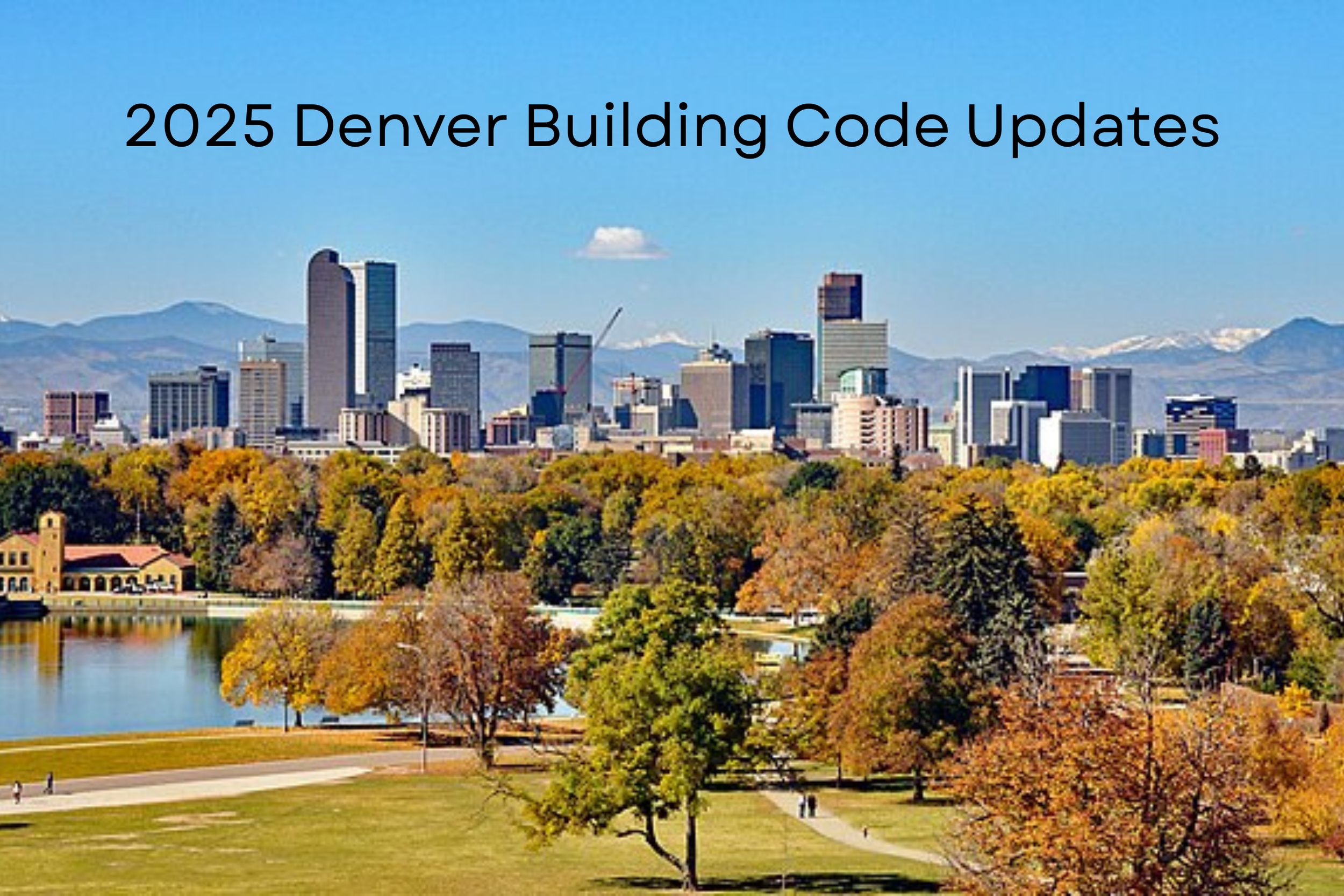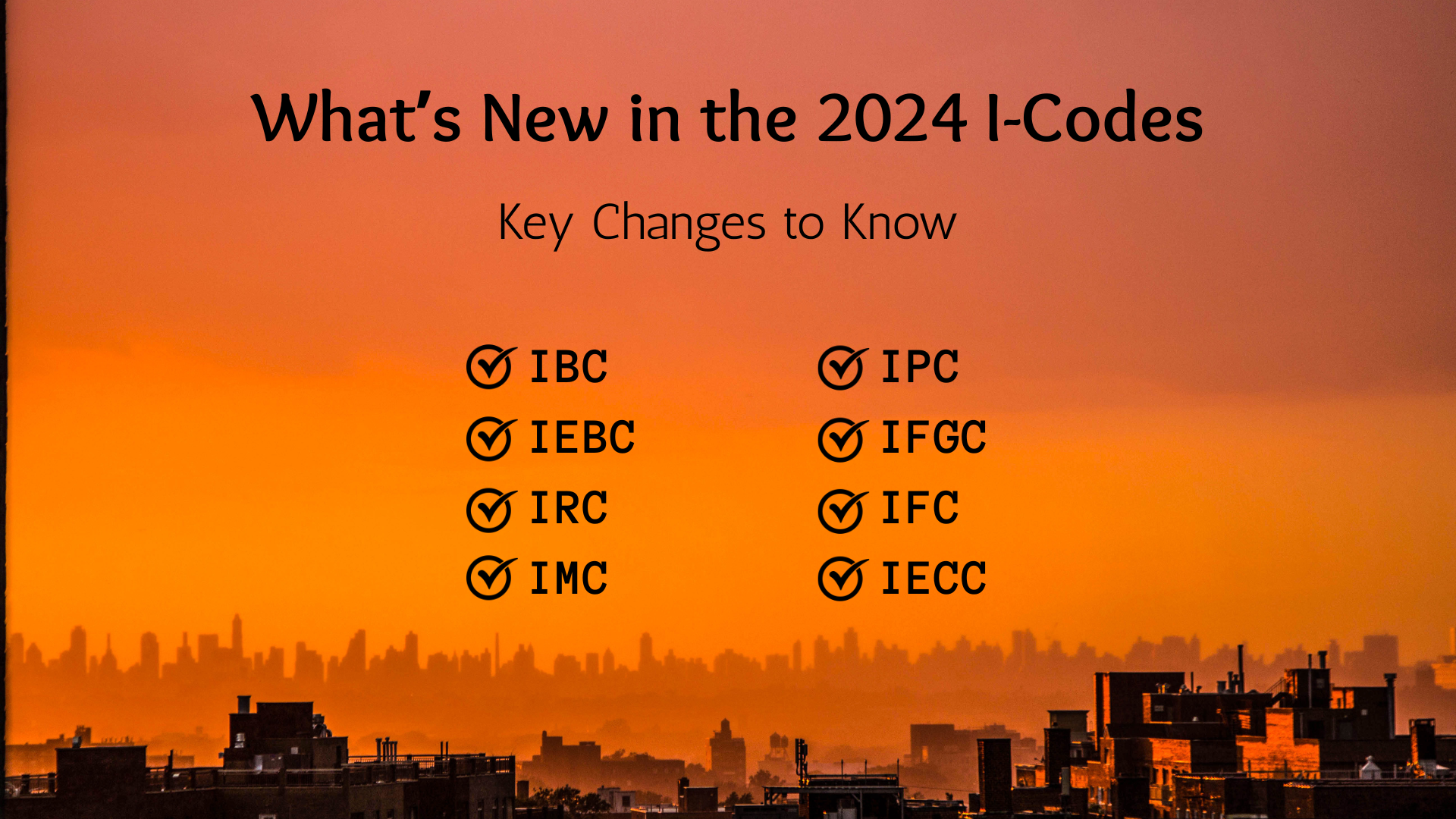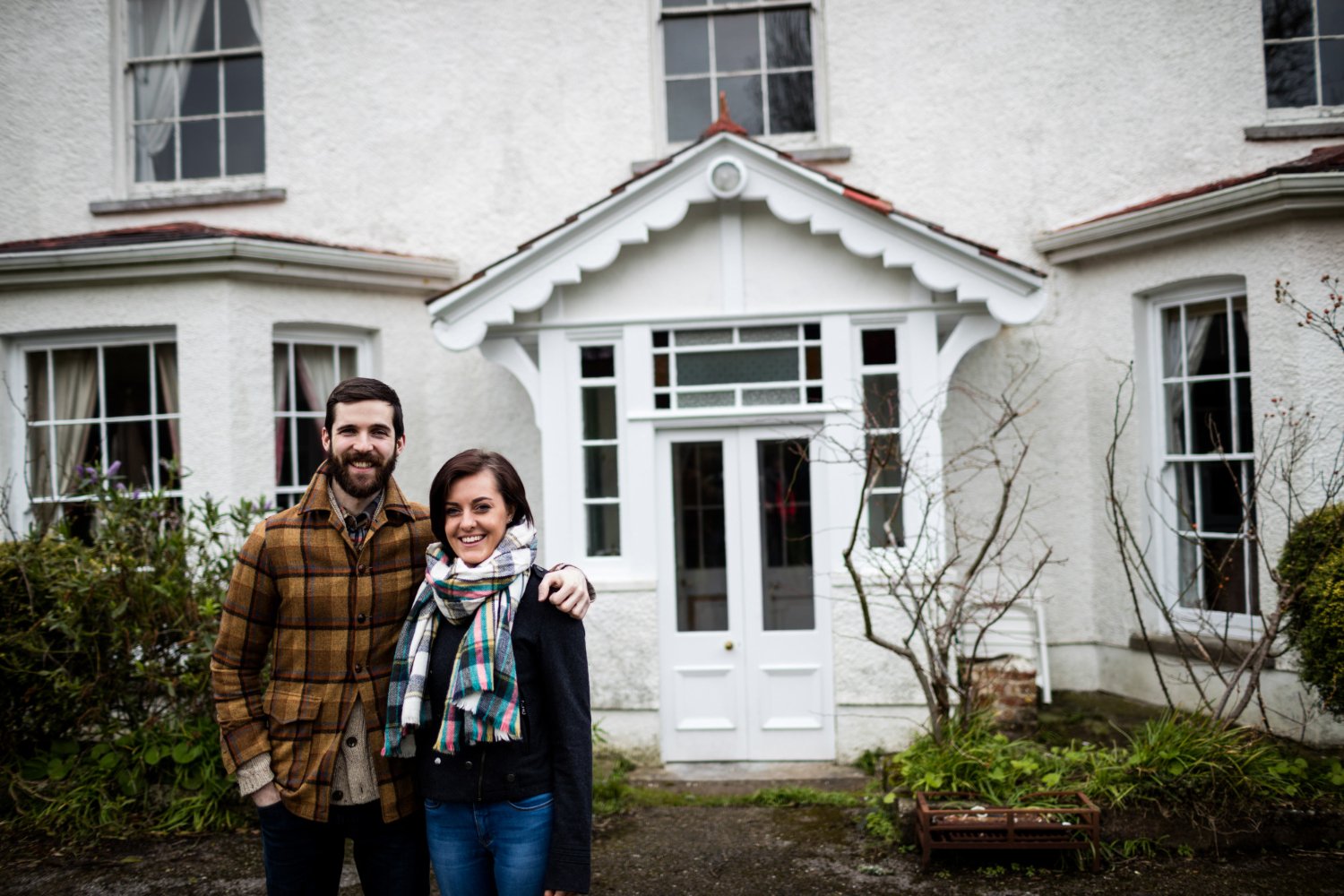2025 Denver Building Code Updates Explained: A Guide for Contractors, Homeowners, and Architects
On June 13, 2025, the City and County of Denver officially adopted new building and fire codes. These updates reflect the latest standards from the International Code Council (ICC) and are now in effect for all relevant construction and renovation projects. Whether you're planning a new build, a remodel, or you're responsible for code compliance on large-scale developments, understanding these changes is essential.
In this guide, we’ll break down what’s new, what it means for you, and how to stay compliant under the 2025 Denver building code updates.
What Are the 2025 Denver Building Code Updates?
The new codes incorporate multiple updates from the ICC, including:
By adopting these newer codes, Denver aims to:
Improve safety and structural integrity
Enhance energy efficiency in new and existing buildings
Modernize requirements to align with current technology and building practices
Key Changes to Know: What’s New in the 2024 I-Codes
Let’s take a closer look at some of the notable updates that could affect your projects:
Residential Construction (IRC)
New requirements for load path continuity and shear wall design
Enhanced rules for fire-resistant materials in wildland-urban interface areas
Updates on stair geometry, handrails, and energy efficiency
Existing Buildings (IEBC)
Streamlined compliance options for remodels, additions, and change-of-use projects
More flexibility in addressing aging infrastructure while maintaining safety
Expanded guidance for seismic retrofits and accessibility upgrades
Fire Code (IFC)
Stricter standards for fire alarms, sprinkler systems, and hazardous material storage
More detailed requirements for EV charging stations and lithium-ion batteries
Expanded rules around high-rise safety and fire department access
Mechanical, Plumbing, and Fuel Gas
Emphasis on energy-efficient HVAC systems and low-flow plumbing fixtures
New code provisions for carbon monoxide detection and ventilation systems
Improved gas line sizing and installation standards for safety
Energy Conservation (IECC 2021)
Tougher insulation and air sealing standards for both commercial and residential builds
Mandatory blower door testing for homes
Improved HVAC efficiency requirements and lighting controls
Accessibility & Life Safety (IBC)
Better alignment with ADA standards
Clarified rules around egress widths, emergency exits, and stair design
Enhanced protection for occupants in multifamily and mixed-use buildings
Who Is Affected by These Changes?
Contractors & Builders
Must ensure all new permit applications meet 2024 I-Code standards
Need to educate crews on updated construction techniques and materials
Architects & Designers
Required to design within the framework of updated fire safety, energy, and accessibility codes
Should revise standard templates and specs accordingly
Homeowners
Must comply with new codes for additions, remodels, accessory dwelling units (ADUs), and energy upgrades
Energy testing and documentation now play a greater role, especially for resale value
Developers & Real Estate Investors
Large-scale and mixed-use projects will face increased documentation and inspection requirements
Ignoring these updates could result in failed inspections, costly redesigns, or project delays
Permits, Inspections, and Compliance Under the New Codes
Any building permit submitted on or after June 13, 2025, will be reviewed under the new codes. This includes:
New construction (residential and commercial)
Interior remodels and additions
Changes in occupancy or use
Mechanical, plumbing, and fuel gas system updates
Inspections will now be more aligned with the 2024 I-Codes. Expect officials to check for:
Updated fire safety systems
Energy efficiency verification
Proper structural design based on the new load provisions
Accessibility improvements where required
How to Prepare for the Transition
Here are a few tips to help you stay on track:
Review your current and upcoming project plans to ensure they align with the new codes
Consult with a licensed architect, engineer, or code consultant before submitting permits
Access official code documents via denvergov.org
Attend webinars or training sessions hosted by the city or local trade organizations
Update contracts and schedules to accommodate new compliance steps and inspections
If your plans were under review before June 13, you may be eligible to continue under the previous codes; please check with the city’s building department for guidance.
Conclusion
Denver’s 2025 building code updates are more than just paperwork. They're a move toward safer, smarter, and more sustainable buildings across the city. Whether you're designing a dream home, renovating a historic property, or developing a commercial site, aligning with these new regulations early will save you time, money, and headaches.
Need Help Navigating the New Building Codes?
Don’t get stuck in red tape. Reach out to a licensed professional or consult Denver’s building department for up-to-date resources and code support.
Sources & References
City and County of Denver: Building and Fire Code Updates
International Code Council: https://www.iccsafe.org
Significant Changes to the 2024 IBC, IRC, IEBC, IFC, and 2021 IECC, International Code Council Publications
2024 I-Codes Overview: ICC Code Update Summaries (Print and Digital Editions)




